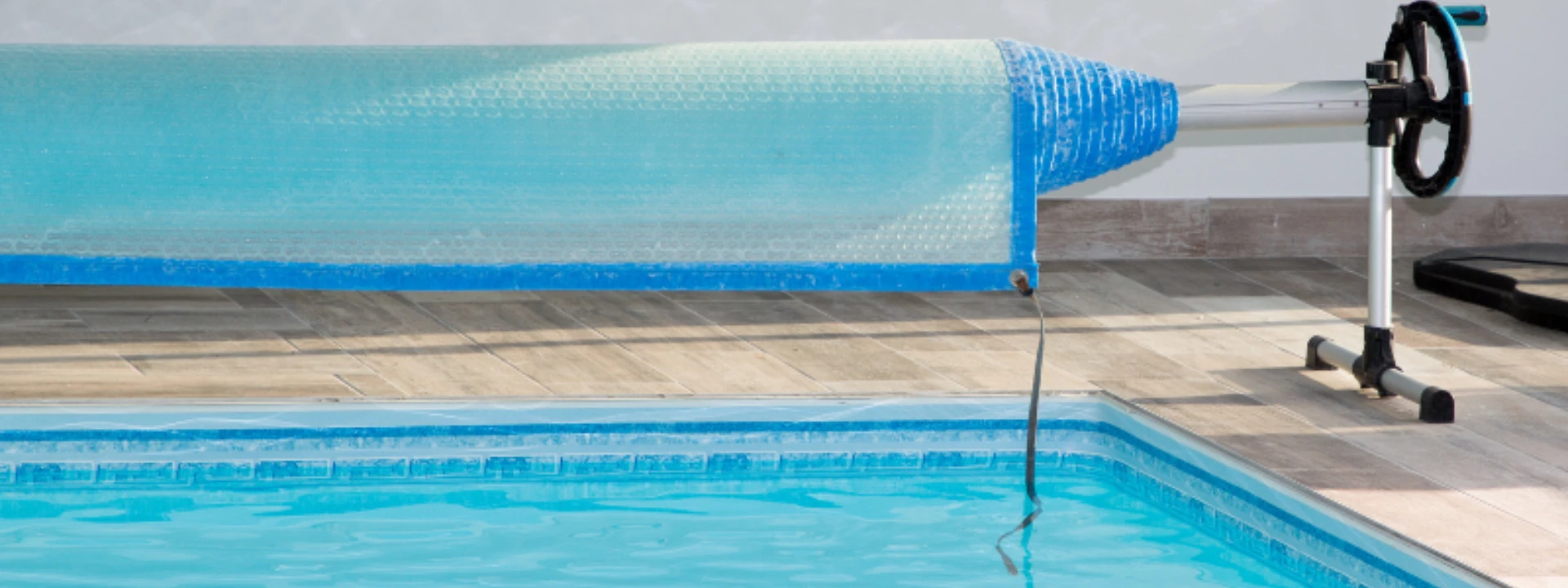
Solar Pool Heater Spain: How to Heat Your Pool and Cut Costs
If you own a pool in Spain, using a solar pool heater is one of the smartest ways to enjoy it all year—especially if your home is rented out as a holiday let. A warm pool boosts guest satisfaction and can extend your rental season into the cooler months. One of the top questions we hear is:
“Can I heat my swimming pool using solar panels?”
“Is a solar pool heater cost-effective in Spain?”
The answer is a clear yes.
With Spain’s sunny climate, solar energy is not just an eco-friendly option—it’s a smart way to cut down on running costs. Let’s explore the best solar pool heating systems and how to get the most out of them.
Pool Heating Options in Spain
1. Gas Pool Heaters (Not Recommended)
- Outdated, expensive, and highly polluting.
- Not considered viable due to low efficiency and rising gas prices.
2. Direct Solar Water Heating Systems
These systems use black tubing or plastic mats to absorb heat from the sun. Pool water is pumped through these tubes, where it picks up solar heat.
Pros:
- Very low operating cost
- Simple technology
- Perfect for sunny days
Cons:
- Only works when the sun is out
- No backup for cloudy or winter days
- Needs extra pumps, adding to system cost
- Can clog in areas with hard water
💡 Tip: A separate pump is often used so it doesn’t interfere with your filtration system.
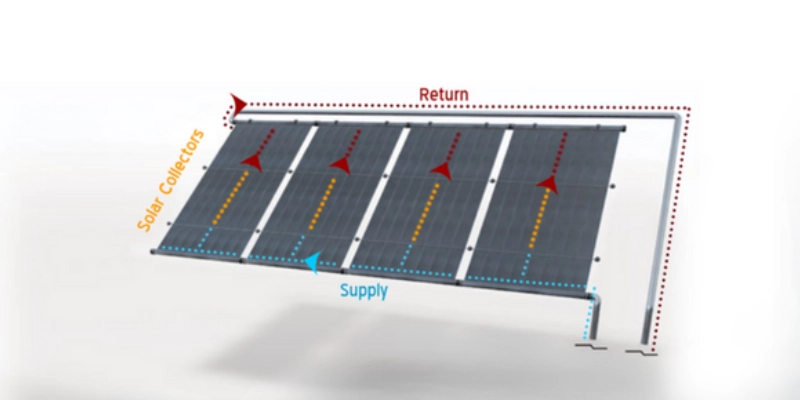
3. PV Solar Panels with Air Source Heat Pumps (ASHP)
This is the most popular and efficient solution.
How it works:
- PV solar panels generate electricity.
- This powers an ASHP that extracts heat from the air and transfers it to the pool water.
- The process is thermodynamically efficient—just like a reverse air conditioner.
Key Benefits:
- Works even in colder months
- Up to 400% efficiency
- Cuts electricity costs when combined with solar panels
- Extends your swimming season year-round
🔌 Run the heat pump during the day to maximise free energy from your solar system.
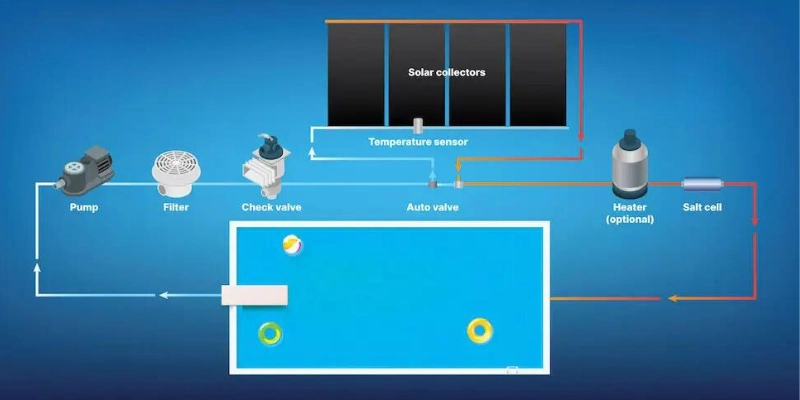
Why a Pool Cover Is Essential
Most heat loss in pools comes from evaporation.
Use a Solar Pool Cover:
- Keeps water warm by reducing evaporation
- Maintains heat overnight and during cooler days
- Available as plastic sheets or motorised solid covers
- Adds extra insulation to your system
🛡️ Using a good pool cover can reduce heating demand by up to 70%.
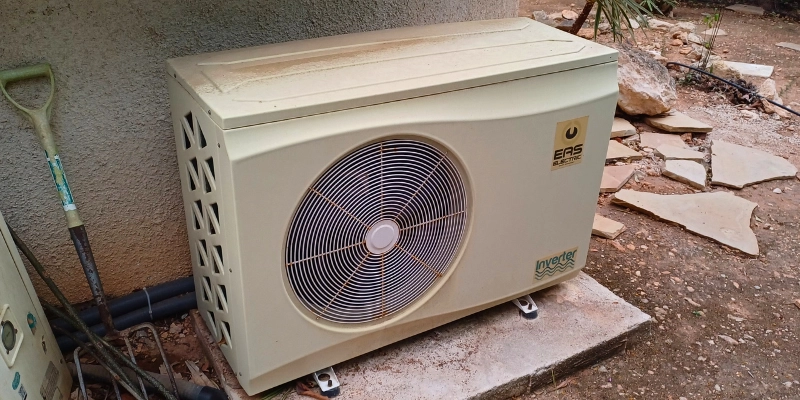
Real Energy Usage: 2023-2024 Case Study
We tracked pool heating costs in Moraira from December 2023 to March 2024. Two pools with covers were monitored.
| Pool Size | Power Used Per Week | Target Temp |
|---|---|---|
| 12m x 5m (1.5m avg depth) | 770 kWh | 28–30°C |
| 8m x 4m (1.75m avg depth) | 560 kWh | 28–30°C |
Monthly Average Temperatures:
| Month | High (°C) | Low (°C) |
|---|---|---|
| October | 23 | 14 |
| November | 19 | 10 |
| December | 16 | 7 |
| January | 15 | 6 |
| February | 16 | 7 |
| March | 18 | 9 |
🧠 It’s more efficient to keep the pool at a steady temperature than to heat it up from cold repeatedly.
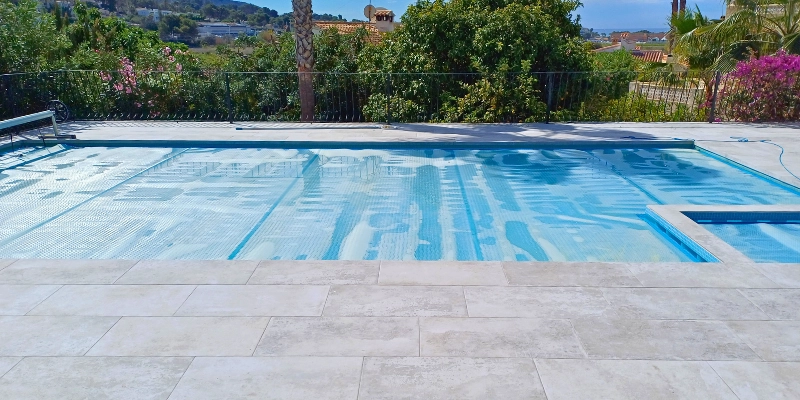
How Much Does It Cost to Heat a Pool in Spain?
Costs depend on:
- Pool size and depth
- Desired water temperature
- Time of year
- Quality and efficiency of your heat pump
- Use of pool cover
- Electricity source (grid vs solar)
Using solar energy dramatically reduces long-term costs—especially if your PV system is already installed for home use.
Is Solar Pool Heating Worth It?
Absolutely. Here’s why:
✅ Saves money on electricity
✅ Eco-friendly and sustainable
✅ Works well with Spain’s sunny climate
✅ Extends your pool use through winter
✅ Adds value to your property
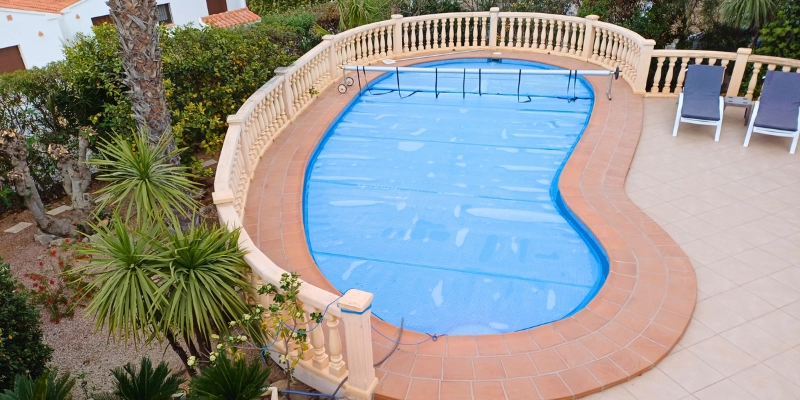
Get a Free Solar Pool Heating Quote
We design and install custom solar pool heating systems across the Costa Blanca and beyond. Our team uses only the best materials and tech for long-lasting, high-efficiency results.
